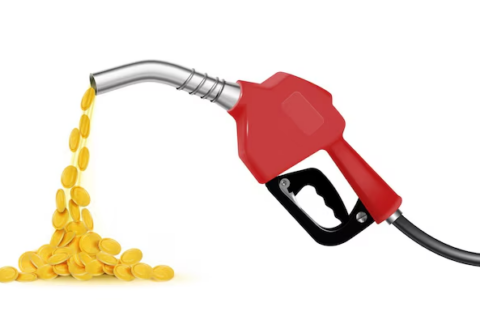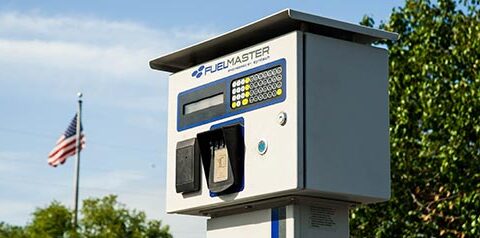What is a Fuel Management System?
 A fuel management system is a type of software and hardware technology used to monitor, control, and optimize fuel consumption in various applications, such as in the transportation, construction, and energy industries.
A fuel management system is a type of software and hardware technology used to monitor, control, and optimize fuel consumption in various applications, such as in the transportation, construction, and energy industries.
In vehicles, fuel management systems can help to ensure that fuel is being used efficiently by monitoring fuel consumption, engine performance, and other factors. This can help to reduce fuel costs, increase operational efficiency, and lower emissions.
In the energy industry, fuel management systems are often used in power plants and other facilities that rely on fossil fuels, such as coal or natural gas, to generate electricity. These systems can help to optimize fuel usage, reduce waste, and improve overall plant efficiency.
Fuel management systems typically use sensors and data analysis tools to track fuel usage, identify inefficiencies, and provide feedback to operators. They can also include features such as remote monitoring, automatic shut-off controls, and real-time alerts to help prevent fuel theft or other unauthorized activities.
On Fuel Tanks
A fuel management system on an on-site fuel tank is a technology used to monitor and control the fuel inventory and dispensing process. It allows businesses or organizations that rely on fuel for their operations to manage their fuel supply more efficiently, reduce fuel waste, and improve safety.
In an on-site fuel tank, a fuel management system typically includes hardware and software components. The hardware consists of sensors, flow meters, and other equipment that measures the level of fuel in the tank and the amount of fuel being dispensed. The software component includes a control panel or dashboard that displays the fuel data and allows the user to control the fuel dispensing process.
With a fuel management system, a business or organization can monitor the fuel levels in the tank in real-time and track fuel usage to identify any inefficiencies. This information can help them to optimize fuel usage, reduce waste, and save money on fuel costs.
A fuel management system on an on-site fuel tank can also include features like access control and security measures to prevent unauthorized access or fuel theft. This can be especially important in remote or unmonitored locations where fuel tanks may be vulnerable to theft or tampering.
Overall, a fuel management system on an on-site fuel tank can provide businesses and organizations with greater control over their fuel supply, improve efficiency, and reduce fuel-related costs and risks.
Benefits for On-Site Tanks
 Fuel management systems for on-site fuel tanks offer several benefits, including:
Fuel management systems for on-site fuel tanks offer several benefits, including:
Improved Efficiency
Fuel management systems allow for accurate tracking of fuel levels and consumption, enabling users to optimize their fuel usage and minimize waste. This can result in significant cost savings over time.
Reduced Risk of Fuel Theft
Fuel management systems provide security measures that deter fuel theft and unauthorized usage of fuel. This helps to prevent losses and ensures that the fuel is used for its intended purpose.
Increased Safety
Accurate tracking of fuel levels helps to prevent overfilling of tanks, which can be dangerous and result in spills or leaks. Fuel management systems can also detect leaks or other issues in the fuel system, helping to prevent accidents.
Enhanced Compliance
Fuel management systems provide accurate records of fuel usage, which can help companies comply with regulatory requirements for reporting and documentation.
Improved Maintenance
Fuel management systems can provide alerts for scheduled maintenance and monitor the condition of the fuel tanks and associated equipment. This can help to prevent breakdowns and extend the lifespan of the equipment.
Fuel Monitoring Solutions
Automated fuel tracking technology offers businesses detailed insights into fuel consumption. Real-time fuel monitoring solutions track fuel levels and usage rates, allowing businesses to identify inefficiencies and optimize fuel use, ultimately reducing fuel costs.
Types of Fuel Management Systems
Fuel management systems come in various forms, such as:
- On-site fuel systems: Ideal for businesses with large fuel tanks, using sensors and flow meters to monitor fuel levels.
- Fleet management systems: Designed to track fuel consumption across multiple vehicles, ensuring optimal fuel efficiency.
- Automated systems: Perfect for remote locations, providing real-time tracking without the need for on-site monitoring.
Fuel Usage Data Analysis
Fuel management systems generate detailed data, allowing businesses to analyze fuel usage patterns and make adjustments to improve efficiency. This analysis helps identify areas of waste and optimize fuel consumption.
Overall, fuel management systems provide a range of benefits that can help companies to save money, improve safety and compliance, and enhance operational efficiency. Reach out to Ricochet Fuel today and see how a fuel management system can benefit you! We offer fuel management systems from Tecalemit, FuelMaster, and Datapak and can ship them nationwide right to your door.


